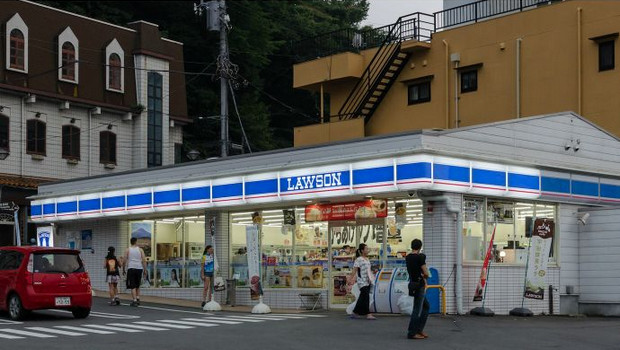Japan boasts 2,400 transcritical CO2 retail installations

Market leaders Lawson and AEON are continuing with their ambitious natural refrigerant adoption plans despite the discontinuation of a Japanese Ministry of Environment subsidy for retailers in the fiscal year 2017.
Japanese convenience store and supermarket retailers are continuing to drive the adoption of CO2. As of February 2017, there are over 2,400 CO2 retail store installations in Japan (more than 2,300 convenience stores and 140 supermarkets). This represents a twelve-fold increase in just three years, with Japan having only 190 CO2 stores in March 2014.
Japanese convenience store (CVS) chain Lawson is leading the charge, choosing to continue their impressive rollout of CO2 stores despite the discontinuation of the government subsidy in the fiscal year 2017.
Lawson to hit 2,000 CO2 store mark by end February
Beginning in August 2014, Lawson made CO2 refrigeration the standard for the majority of its new stores. By the end of February 2017, Lawson will have 2,000 CO2 installations. It has taken a bold leadership stance, committing to a total of 2,700 CO2 stores before the end of February 2018 – despite the discontinuation of Japanese Ministry of Environment subsidies aimed at encouraging the use of natural refrigerants in the commercial sector.
The subsidy was in effect from 2014-2016, but will be discontinued at the start of the 2017 fiscal year.
Among supermarkets, AEON is the leader by far with a total of 99 supermarkets using CO2 as of February 2017. AEON boasts another 20 convenience stores using CO2 under its Ministop brand.
Top convenience stores and supermarkets
In Japan, the three largest convenience store franchise chains are 7-Eleven, Lawson, and Family Mart (including recently acquired Circle K Sunkus), collectively accounting for 2,214 CO2 store installations (out of the three chains’ total of 50,326+ CVS).
7-Eleven, which opens or remodels around 1,500 convenience stores annually, has the next largest number of CO2 stores at 155. Family Mart has 59.
Among the 20,000 supermarkets in Japan, only 140 of them use CO2. AEON has 99, Co-op Sapporo has nine, Seiyu has five, and Co-op Miyagi has four.
Japanese technology enabling growth
While CO2 installations in Europe consist mainly of transcritical CO2 racks with capacities ranging from 10-100kW, in Japan, outdoor condensing units (typically 2-20 HP) are the leading CO 2 solution.
Panasonic is responsible for over 90% of CO2 installations in Japan, along with others such as Sanden and most recently, Mitsubishi Heavy Industries.
